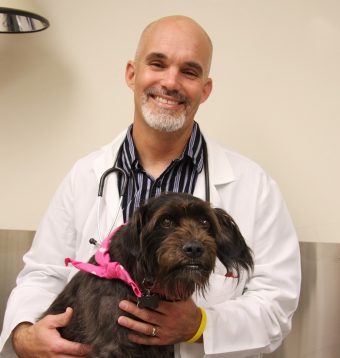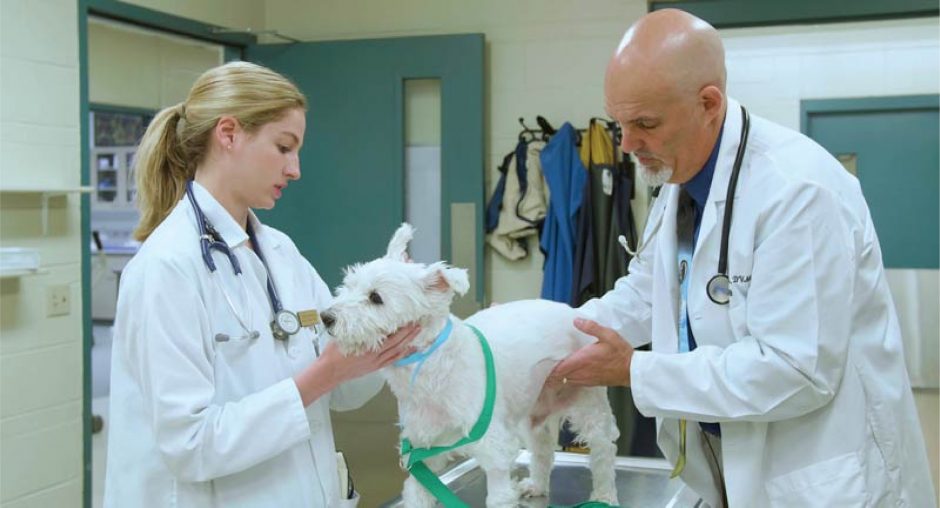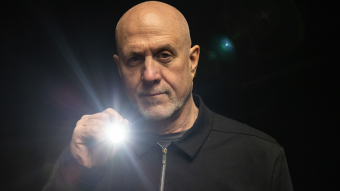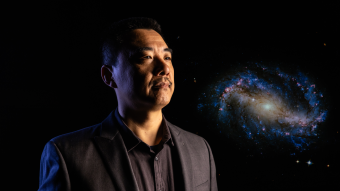June 18, 2020
Ruby had always been an active dog.
So when Kristen Constable and her family returned home from vacation and discovered their beloved greyhound limping, they assumed Ruby had simply injured herself while playing. Nothing too serious.
But a trip to the family veterinarian led to a referral to the University of Missouri College of Veterinary Medicine, which resulted in a devastating diagnosis — Ruby had osteosarcoma, a common type of bone cancer in dogs. The prognosis was grim, probably less than a year to live after amputation of the cancerous limb and several rounds of chemotherapy, not to mention all the side effects that go with it.
The Constables were crestfallen.
But Brian Flesner, an assistant professor of oncology, and Jeffrey Bryan, a professor of oncology, at the MU College of Veterinary Medicine and their team offered the family an alternative. Ruby could enroll in a first-of-its-kind study to help advance a patient-specific, precision medicine treatment for bone cancer in dogs.
That was more than three years ago.

Today, 12-year-old Ruby is living proof that Bryan and his research team have advanced an exciting new method for treating osteosarcoma in dogs that can significantly prolong the life of some patients without the use of chemotherapy. By creating a vaccine from a dog’s own tumor, MU scientists worked with ELIAS Animal Health, the developers, to target specific cancer cells and avoid the toxic side effects of chemotherapy, while also opening the door to future human clinical trials. The U.S. Food and Drug Administration recently placed the process on the fast track for treatment of a form of cancer in humans called glioblastoma multiforme or GBM.
“What we learned in this dog study — the successes and failures — is already informing what is being done in human studies,” Bryan said. “We hope to expand the types of cancer that we treat using this method.”
Precision medicine — or treatments tailored to the patient like the vaccine and cell treatment Ruby received — will be a key component of the NextGen Precision Health Initiative by helping accelerate medical breakthroughs for both patients in Missouri and beyond. Precision medicine can be based on someone’s own DNA or – in Ruby’s case – based on specific tumors growing in one’s body.
Bryan will serve as the Cancer Faculty Research Lead at the NextGen Precision Health Institute slated to open in Fall 2021. Today marked a topping-off ceremony for the facility.
Osteosarcoma is not common in humans, representing only about 800-900 new cases a year in the U.S. About half of those cases are reported in children and teens. The disease is much more common in dogs — especially big dogs — with more than 10,000 cases a year in the U.S.

In Bryan’s study, researchers used the dog’s own tumor to create a vaccine that was then injected into the patient to stimulate anti-tumor lymphocytes. The lymphocytes were then collected and expanded outside the body by ELIAS to create a transfusion of the patient’s immune cells.
“Essentially, the lymphocytes are exposed to chemicals that make them very angry and ready to attack the targeted cells,” Bryan said. “Then, we transfuse them back into the patient’s blood like we would a blood transfusion.”
The result: angry lymphocytes hunt down the cancer cells and kill them. The whole process is over in about seven to eight weeks. Overall, the dogs like Ruby who received the vaccine had more than 400 days of remission compared to about 270 days for dogs receiving chemotherapy in a separate study by the National Cancer Institute.In the near future, Bryan said researchers plan to launch a similar patient-specific, precision medicine study aimed at treating melanoma in dogs.
For Constable, the gratitude of still having Ruby is eclipsed only by the joy of watching her race across the yard and leap into the air for a toy.
“Honestly,” she said, “you couldn’t ask for a better dog than Ruby.”
Bryan is a member of the ELIAS Animal Health scientific advisory board.



